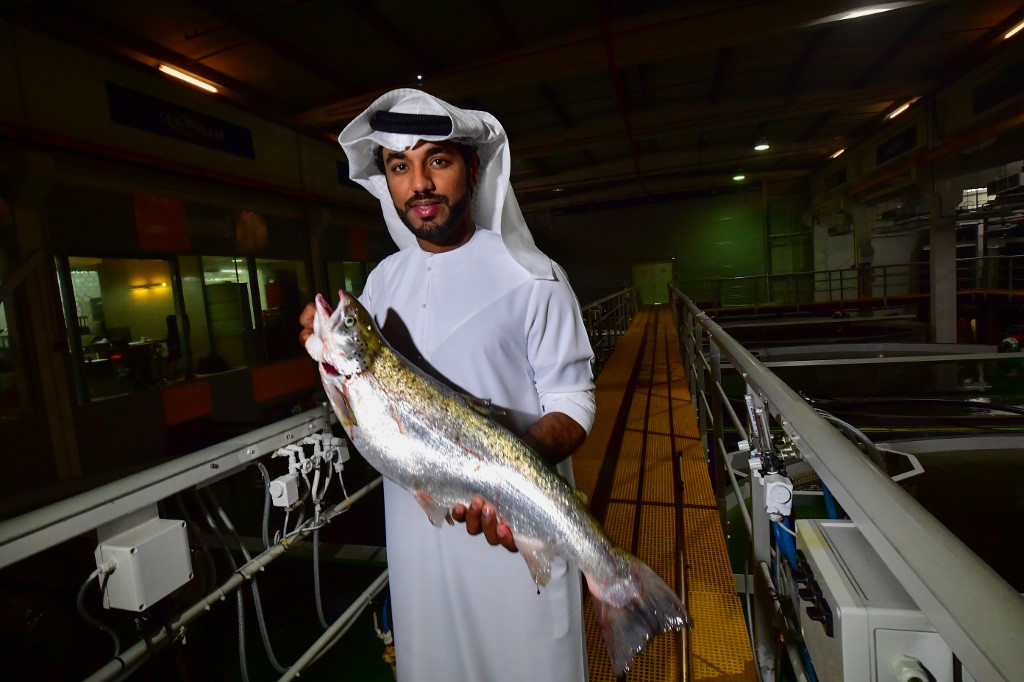São Paulo – Gulf farmers are not all about dates. Spinach, salmon, mango, sardine and other foods are being produced sustainably in the United Arab Emirates to help bring about food security, local newspaper The National reported online.
The UAE have invested heavily in purchasing land abroad, but the coronavirus pandemic came as a bold reminder of the need to grow food locally. Incentives are available to hydroponics and fish farming to balance out the needs of a growing population with scant natural resources.
Salmon
Salmon is one of the food items being produced locally, and the second most popular fish in the country. Usually imported from Norway and Chile, it is also being harvested at the Fish Farm in Jebel Ali, the portside community in Dubai. The farm started off by sourcing 40,000 baby salmon from Scotland, with plans to produce 10,000 to 15,000 kg per month. Pictured at the top of this page is Fish Farm CEO Bader bin Mubarak.
Oyster
The UAE consumes 220,000 tons of seafood per year, three quarters of which is imported. Born in Scotland and raised in Dubai, Ramie Murray envisioned an opportunity and created Dibba Bay, a three-hectare farm producing 25,000 to 30,000 oysters per month in Fujairah to supply local restaurants. The briny food item is grown on the east coast, in multi-level nets three meters under sea level.
Dairy
The shutting down of borders prompted the Gulf Cooperation Council (GCC) countries to invest in dairy production, despite the major carbon and water footprint of raising cattle. UAE dairy farms are located in Al Ain Ras Al Khaimah. Food specialists also see untapped potential for camel milk.
Leafy greens
Hydroponic farming is organic as well as water- and land-efficient, so Abu Dhabi farmers are embracing the technique to grow big crops of cucumber, tomato, cabbage and green peppers. Fast-growing plants like lettuce, spinach and arugula are popular in hydroponic farms, where crops are grown in tubes of nutrient-rich water instead of soil.
Mango
The mountainous Fujairah area is home to about half the mango trees in the UAE – there were 109,000 across the country in 2015. However, some farmers are turning away from mangoes and conventional farming as water tables turn saline and electricity spending proves too high – which goes to show that long-term resource management is key to ensuring food security throughout the decades. Mango farming in the UAE began after the country was founded in the 1970s. In 2011, the Liwa Date Festival offered AED 25,000 for the best mango.
Sardines
Available on the east coast, sardines are a source of protein, Omega-3, calcium and vitamin D, and display lower levels of mercury than other fish.
Mountain herbs
The mountains and deserts of the UAE provide herbs that can regulate blood sugar and ease menstrual cramps, among other things. However, these fragile habitats are being lost to growing suburbs and roads, and are at risk from climate change. Botanists are still discovering the properties of these resistant plants that are perfectly adapted to the arid climate of the UAE, The National said.
Translated by Gabriel Pomerancblum




